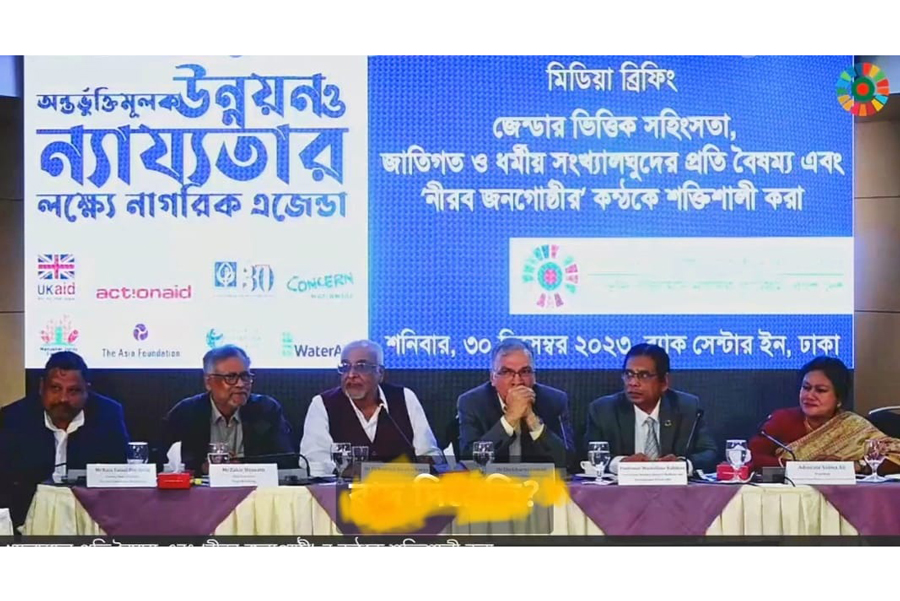
Published :
Updated :

Dr Debapriya Bhattacharya, convenor of Citizen’s Platform for SDGs, Bangladesh and distinguished fellow at the Centre for Policy Dialogue (CPD), has raised significant concerns regarding the misuse of state resources and transparency in the political sphere.
During a media briefing at the Brac Centre in Mohakhali, Dhaka, on Saturday, he emphasised the increasing wealth of members of parliament.
Dr Bhattacharya highlighted the discrepancies evident in the affidavits of political candidates contesting the upcoming national election.
He pointed out that these affidavits reveal a pattern of misappropriating state money, thereby depriving citizens of rightful ownership in state assets. This practice starkly contrasts with politicians' public commitments to the welfare of the masses.
“We have observed numerous elections, including those in 1988 and 1996, where outcomes went against the vast public opinion. Such elections undermine sustainable development and shrink the space for accountability,” Dr Bhattacharya stated.
He stressed the need for Bangladesh to combat corruption and enhance accountability across all state institutions to achieve Sustainable Development Goals (SDGs).
Dr Bhattacharya criticised the lack of competitiveness in elections and the overwhelming majority of a single party in parliament, which leads to negligence in legal compliance and citizens’ rights.
Dr Bhattacharya also commented on the election manifesto of the Awami League, noting its focus on the accountability of non-governmental development organisations and their funding sources.
However, he remarked that the manifesto failed to acknowledge the significant contributions of these organisations to Bangladesh's socio-economic sector.
Dr Iftekharuzzaman, executive director of Transparency International Bangladesh (TIB) and a core member of the Citizen’s Platform, expressed concerns about the intentions behind politicians' repeated elections.
“It's unclear whether their politics are driven by public welfare or personal wealth accumulation. The transparency in their commitment to welfare and concealment of their wealth acquisition motives is questionable,” he observed.
Dr Iftekharuzzaman also noted the weakening of state regulatory bodies, which are unable to scrutinise the sources of income of candidates, some of whom have seen their wealth increase exponentially.
“This issue stems from MPs' indifference to the people's right to elect them, leading to uncontested elections or lack of competition,” he opined.
The event, moderated by Professor Mustafizur Rahman, another distinguished fellow at CPD, marked the release of research reports on various social achievements in line with SDGs targets.
These reports covered topics like gender-based violence, discrimination against ethnic and religious minorities, and ways to amplify the voices of marginalised communities.
Representatives from over a dozen non-governmental organisations, who contributed to the ground-level research for the report, attended the briefing.
The research was supported by various development partners and international aid agencies, including UKAID, ActionAid, Concern, and WaterAid.


 For all latest news, follow The Financial Express Google News channel.
For all latest news, follow The Financial Express Google News channel.